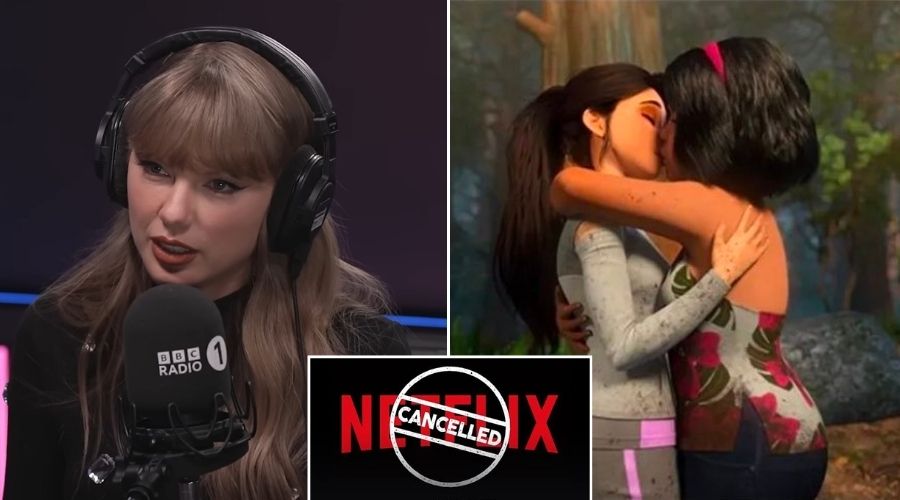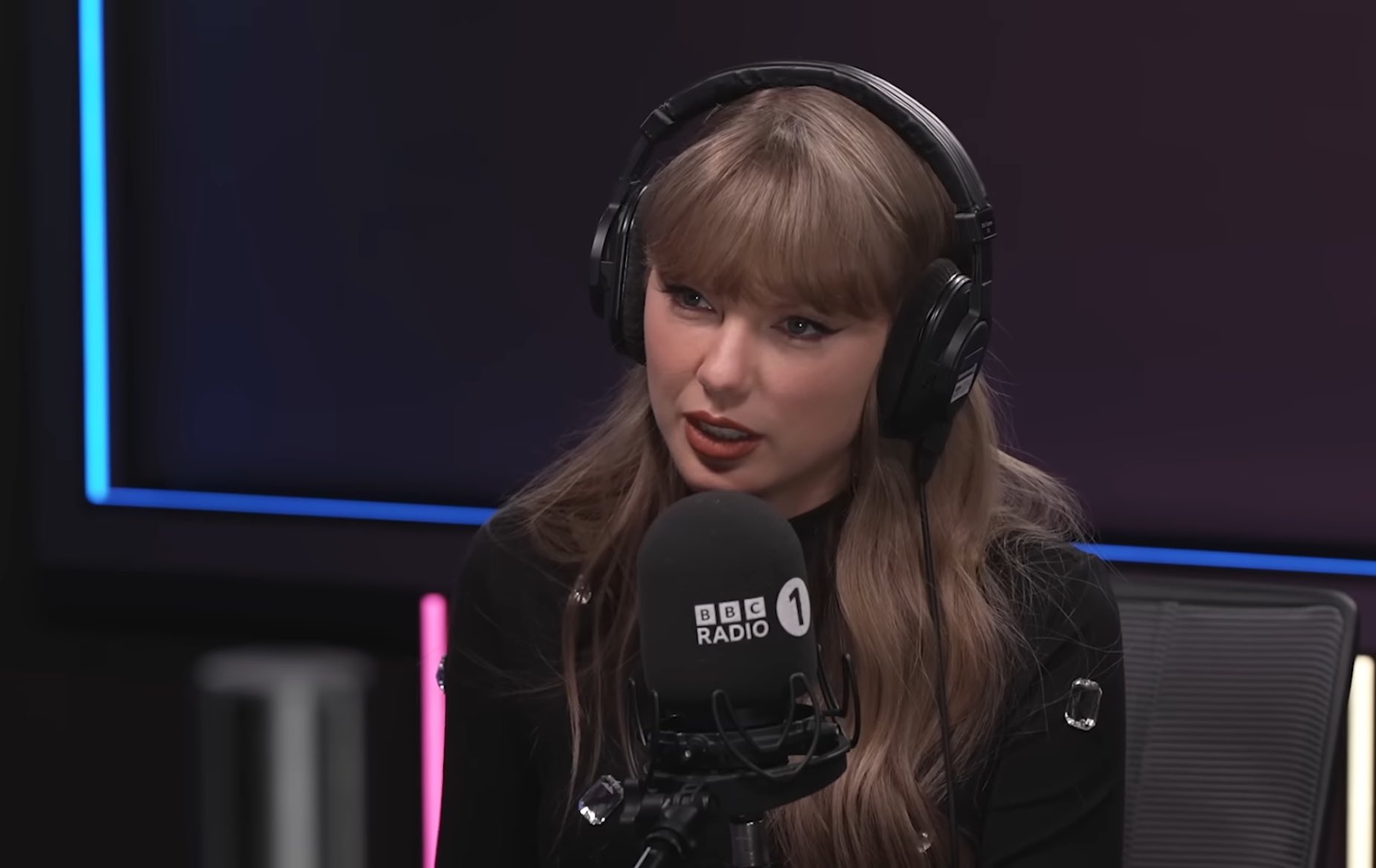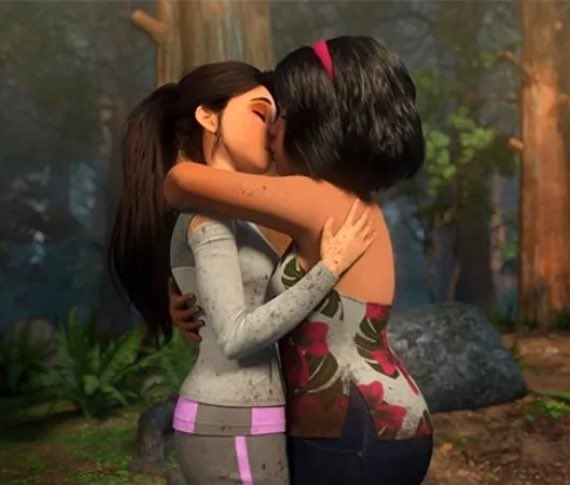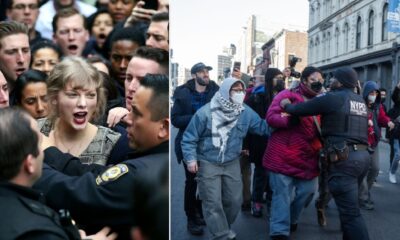CELEBRITY
Breaking News: Taylor Swift Joins the Uproar to CANCEL Netflix After the Creator of a Transgender-Themed Children’s Cartoon Allegedly Condemns Activist Charlie Kirk Following His Death

The headlines had already exploded across feeds and group chats, but when Taylor Swift stepped into the fray, the controversy ascended to a new stratosphere. What began as another online backlash to children’s programming swiftly morphed into a high-stakes cultural collision — and now, everyone’s watching.
The trigger was a resurfaced clip from Dead End: Paranormal Park, the Netflix animated show canceled in 2023 but still stirring uproar in 2025. That clip, reposted by a conservative account, shows the show’s protagonist, Barney, declaring they are transgender. Critics seized on this moment, claiming it was yet another push of “woke propaganda” in children’s entertainment. Elon Musk, never one to stay on the sidelines, took up the banner—urging his massive X audience to cancel Netflix “for the health of your kids.” He reposted memes, piled on demands, and lit the fuse that would draw Taylor into the storm.
Taylor did not wade in quietly. Her entry was loud. She joined the chorus calling for Netflix’s cancellation, saying that after decades in the public eye she’d learned one simple truth: “I don’t care who you are or how you identify, but do not push this onto my kids.” Her voice, already amplified by the success of The Life of a Showgirl on streaming platforms, made her words land like detonations in every corner of social media. Suddenly the debate wasn’t just about a canceled cartoon — it was a clash between parents, identity, artistic freedom, and cultural control.
At the center of the storm is Dead End’s creator, Hamish Steele, who had already faced criticism and even harassment when the show originally aired. The series, based on Steele’s DeadEndia graphic novels, starred Barney — a gay, transgender teen — and Norma, a bisexual, autistic Pakistani-American teenager. Together with their talking pug, Pugsley, and a thousand-year-old demon named Courtney, they navigated a haunted amusement park while grappling with identity, friendship, and existential threats. When Netflix canceled the series after two seasons, Steele revealed that scripts and designs for season three existed but would never be produced.
What blew up this time wasn’t just the show itself — it was recent social media claims that Steele had criticized the late conservative activist Charlie Kirk, allegedly calling him a “random Nazi.” That sparked accusations that Steele was weaponizing children’s cartoons in political warfare. Whether those reports are fully accurate or not, the accusation provided the kindling to fuel demands that Netflix be canceled, boycotted, and shamed.
The lightning rod reaction, though, came when Taylor leaned in. Her timing was electric: her album surge granted her unprecedented cultural potency, and her interview — raw, unfiltered — made the message impossible to ignore. The combination of her fanbase, the media machinery, and the simmering tensions around identity in kids’ content triggered cascading debate — from TV critics to parenting boards, from X threads to dinner-table arguments. Online, #CancelNetflix trended. Amid the chaos, voices across the spectrum weighed in. Some praised Taylor for defending parental rights; others condemned her for silencing representation; still more argued that Netflix should protect creative freedom and give marginalized creators space.
Netflix itself has remained largely silent. They have not officially responded to Taylor’s or Musk’s calls. But the pressure is real. Some analysts suggest that for streaming platforms, this kind of controversy is a trap — pulling in national culture wars into what was supposed to be entertainment. Musk, meanwhile, has amplified ancient complaints about representation, while re-igniting campaign-style outrage.
The swirl is violent and unyielding. Supporters of the show say it offered rare representation for queer and transgender youth. Detractors argue that concepts of identity should remain off-limits in children’s programming. Taylor Swift’s entrance means that the conflict can no longer be dismissed as niche — her voice commands global attention. The headline now reads not just as a cartoon controversy, but a cultural battleground. And underneath it lies a much deeper struggle: Who controls narratives for the next generation? What voices get heard — and silenced?
As people cancel, debate, retweet, and rage, one thing is clear: in 2025, even a canceled children’s cartoon can become a battlefield for identity, influence, and ideology. And when Taylor and Elon both throw themselves into that fight, the tremors echo far beyond Netflix’s servers.






















